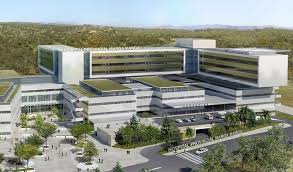What is the public health system like in Valparaíso?

What is the public health system like in Valparaíso?
What is the public health system like in Valparaíso? The Public Health System in Valparaíso: Structure and Challenges.
Valparaíso is not only known for its vibrant culture and stunning landscapes but also for its public health system, which plays a crucial role in providing care to the city’s diverse population.
Like the rest of Chile, Valparaíso’s public health system operates within a broader national framework aimed at ensuring that all citizens have access to healthcare services, regardless of their income or social status.
However, it faces several challenges in meeting the growing demand for medical services in the region. In this overview, we will explore the structure of the public health system in Valparaíso, the services it offers, and the main obstacles it faces.

The Structure of the Public Health System
The public health system in Valparaíso, like the rest of Chile, is based on a mixed system that includes both public and private healthcare providers.
The public healthcare sector is managed by the Ministry of Health (Ministerio de Salud, or MINSAL), which oversees hospitals, clinics, and health centers across the region.
The public system is primarily funded through taxes and contributions made to FONASA (Fondo Nacional de Salud), which is Chile’s national health insurance plan.
FONASA covers a large portion of the population, especially those from lower-income families. Citizens are classified into different groups (A, B, C, D) based on their income, and this classification determines the amount of coverage they receive.
Most people in the public system can access healthcare services for free or at a very low cost, depending on their classification.
Valparaíso’s public health system includes various levels of care, from primary health centers to large hospitals.
Primary healthcare facilities provide the first point of contact for patients, offering general medical services, vaccinations, and preventative care.
More complex medical needs are addressed in larger public hospitals, such as the Hospital Carlos Van Buren, which is one of the most important medical institutions in the region.
Public Hospitals and Clinics
Valparaíso is home to several public hospitals that serve the local population. One of the most notable is the Hospital Carlos Van Buren, a teaching hospital that provides a wide range of medical services, including emergency care, specialized surgeries, and inpatient care.
The hospital also plays a crucial role in training future healthcare professionals, as it is affiliated with the University of Valparaíso’s medical school.
In addition to large hospitals, Valparaíso has numerous smaller public clinics and primary healthcare centers, which are designed to provide preventative care and address less severe health concerns.
These centers are an essential part of the public health system, as they help reduce the burden on larger hospitals by offering services such as routine check-ups, vaccinations, and treatment for common illnesses.
Primary health centers, known as CESFAMs (Centros de Salud Familiar), are spread throughout Valparaíso and its surrounding areas.
They are often the first point of contact for patients seeking medical attention. CESFAMs are community-based and focus on providing family-oriented healthcare services.
This decentralized approach allows residents to access care close to home, reducing the need to travel long distances for treatment.
FONASA and Healthcare Access
FONASA, Chile’s public health insurance, is the backbone of the public health system in Valparaíso. It covers approximately 80% of the population, particularly those in lower-income brackets.
Individuals enrolled in FONASA can access medical services in public healthcare facilities either for free or at a significantly reduced cost.
FONASA beneficiaries are divided into four categories (A, B, C, and D), based on their income levels.
People classified in group A, which includes the poorest citizens, receive free healthcare services in the public system. Those in groups B, C, and D may have to pay a small percentage of the total cost of services, depending on their income.
For many residents of Valparaíso, FONASA provides essential healthcare coverage, particularly for those who cannot afford private insurance.
However, access to specialized care and treatments can sometimes be limited, leading to long waiting times in public hospitals.
Challenges Facing the Public Health System
While the public health system in Valparaíso plays a vital role in providing healthcare to the city’s residents, it faces several significant challenges.
One of the most pressing issues is the strain on resources caused by an ever-growing population and increased demand for healthcare services.
This has led to overcrowding in hospitals, long waiting lists for specialized treatments, and a shortage of medical staff.
The Hospital Carlos Van Buren, for example, often operates at full capacity, particularly in its emergency department.
Patients may have to wait hours or even days to receive treatment for non-urgent conditions.
The shortage of healthcare professionals, particularly in specialized areas such as oncology and neurology, further exacerbates this problem.
Another challenge is the disparity in the quality of care between public and private healthcare sectors.
While public hospitals and clinics provide essential services, they often lack the advanced equipment and facilities available in private hospitals.
This disparity can lead to unequal access to quality care, especially for low-income families who rely solely on the public system.
In recent years, the Chilean government has implemented reforms aimed at improving the efficiency of the public health system, including investments in hospital infrastructure and the hiring of more healthcare professionals.
However, the system continues to face challenges in meeting the needs of the population, particularly in rapidly growing urban areas like Valparaíso.
Mental Health Services in Valparaíso
Mental health is an increasingly important area of focus within the public health system in Valparaíso.
In response to growing awareness of mental health issues, the Chilean government has taken steps to improve access to mental health services, particularly for those in the public healthcare system.
Valparaíso offers a range of mental health services through its public hospitals and primary healthcare centers.
These services include counseling, psychiatric care, and support for individuals dealing with issues such as depression, anxiety, and substance abuse.
However, access to mental health services can be limited due to a shortage of mental health professionals and long waiting times for appointments.
Community-based mental health programs, known as COSAMs (Centros de Salud Mental), have been established to provide mental health support at the local level.
These centers offer a range of services, including therapy, medication management, and support groups for individuals dealing with mental health challenges.
The goal of these programs is to provide accessible care within the community and reduce the stigma associated with seeking mental health treatment.
Public Health Campaigns and Preventative Care
Preventative care is a key component of the public health system in Valparaíso. The Ministry of Health runs numerous public health campaigns aimed at promoting healthy lifestyles and preventing the spread of diseases.
These campaigns focus on areas such as vaccination, nutrition, smoking cessation, and sexual health.
One of the most successful public health initiatives in Valparaíso is the national vaccination program, which provides free vaccines to children and vulnerable populations.
This program has helped reduce the incidence of diseases such as measles, polio, and tuberculosis in the region.
Additionally, public health centers offer routine screenings for conditions such as diabetes, hypertension, and cancer.
These screenings are an important part of early detection and treatment, helping to reduce the long-term burden on the healthcare system.
Summary
The public health system in Valparaíso is an essential lifeline for the city’s residents, providing a wide range of medical services through its network of public hospitals, clinics, and primary healthcare centers.
While the system is designed to ensure that all citizens have access to healthcare, it faces significant challenges, including overcrowded hospitals, long waiting times, and disparities in the quality of care.
Despite these obstacles, efforts are being made to improve the efficiency and accessibility of healthcare services, particularly for low-income families who rely on the public system.
Mental health services, preventative care, and public health campaigns are also critical components of Valparaíso’s healthcare landscape, reflecting the city’s commitment to improving the overall well-being of its population.





Leave a Reply